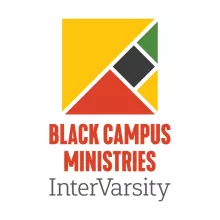
As you consider getting started with Black Campus Ministry, consider these insights, recommendations, and advice from BCM senior leadership.
Be a learner and don’t do it alone
1. Reach out to someone for help
- If you’re on staff with InterVarsity and want to start BCM ministry then start by contacting your regional BCM coordinator (ask your supervisor if your region has a BCM coordinator and who that is). Also, contact the BCM department and let us know that you’re intending to reach out to Black students. We can help!
- If you’re not on InterVarsity staff then use the “Find a chapter” function at intervarsity.org and search for your campus to find an InterVarsity staff who can get you in touch with regional BCM staff.
2. Start with Why. Why do you want to reach Black students? (if you can’t answer that question then you probably shouldn’t…)
3. Learn about BCM
- The Embodied Faith resource is a great place to start. This five-part video series helps explain the DNA of BCM ministry with an introduction and the four elements of belonging, belief, intimacy, and practice. Find it here.
4. Be aware of current events and historical realities, of antiblackness and how it affects Black students. Consider checking out the following resources:
- The 1619 Project
- I'm Still Here: Black Dignity in a World Made for Whiteness by Austin Channing Brown
- Jesus and the Disinherited by Howard Thurman
- In My Grandmother’s House by Dr. Yolanda Pierce
Build trust
Building trust is extremely important. We have to do the work to show them what kind of Christian we are (especially for multiethnic and majority-white chapters). Black students may hesitate to join or trust non-Black Christian communities.
1. Have spiritual authority. Black students (especially high identity Black students) respect and respond to spiritual authority. Your sense of your own spiritual authority is really important.
- Communicate with conviction and confidence
- Having a clear sense of your calling, etc.
2. Have a clear vision
- For multiethnic chapters - practice communicating a clear vision of what they hope to become and embody (speak well of the community you’re hoping to create)
- Have a vision for ethnic-specific ministry. Be able to cast vision for beautiful multiethnic spaces but also communicate the need for ethnic-specific spaces.
3. Invite students to connect more deeply
- Bring food! Practice hospitality! Have food, swag, be generous (in our groups, at tables, even one on one to develop trust).
- Go to events that they lead and that they care about. (gospel choir, fraternity, multicultural office events, etc.) Go and engage and participate and affirm the beautiful things you see them doing there.
4. Have a working understanding of the role of the Black church. (Even if they are not Christian, they’ve probably been shaped by the Black church)
- Do you know the Black churches in your context?
- Do you know the historical role the Black church has played?
- This is the most familiar spiritual space for Black students. How can your community and structures embody some of that?


